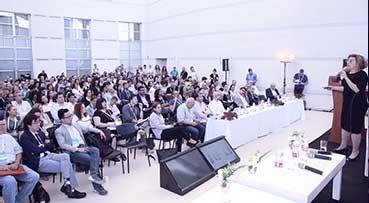In our complex, rapidly changing world, the skill of analytical thinking has emerged as a fundamental requirement for navigating the challenges and opportunities presented by the digital era.
The World Economic Forum (WEF) future of jobs reports since 2016 have consistently underscored the importance of analytical thinking, placing it at the top of the list of essential skills for the future workforce. According to the 2023 report, analytical thinking remains the #1 core skill, as highlighted by a majority of companies across all sectors. Moreover, it is projected to grow in significance, with nearly 50% of companies prioritizing it for reskilling efforts. Given these findings, it becomes imperative for us to delve deeper into understanding what analytical thinking entails and explore strategies to foster its development within ourselves and our teams.
Analytical thinking can be broadly defined as the ability to break down intricate problems into more manageable components, conducting a systematic examination of each part, and drawing well-founded conclusions based on the analysis. This capacity is pivotal in problem-solving, decision-making, and planning, which are fundamental functions within any organization, irrespective of its industry or scale. By applying analytical thinking, individuals can navigate complexity, identify patterns, and generate valuable insights that drive effective solutions and strategic actions.
The significance of analytical thinking is being amplified by the transformative shifts occurring in our work landscape. As we navigate the ongoing evolution of our professional realm, the nature of work is undergoing a profound transformation. In an era where interconnections between physical, digital, and biological spheres are becoming increasingly prevalent, the ability to interpret, analyze, and strategically utilize knowledge has become essential. With automation and AI adoption reshaping job roles and rendering routine tasks obsolete, the value of skills that machines cannot replicate, such as analytical thinking, has surged.
Many organizations operate under the assumption that analytical thinking is primarily concentrated in specific roles or departments, such as data analysis or strategy. However, it is crucial to foster a culture that recognizes the significance of analytical thinking across all areas and encourages every individual, regardless of their role, to apply it in their work. Analytical thinking is not a static skill; rather, it is a continuous journey of development and growth. Similar to any other capability, it evolves over time, reflecting a progression in skills and capabilities.
At the foundational level, individuals engage in data collection and analysis, allowing them to identify relationships, detect trends, and make logical deductions that lead to proposed solutions. As individuals advance and master this skill, they acquire the ability to collect relevant information, organize it into fundamental issues, and identify probable causes, effectively reducing complexity. They further develop the skill to identify logical outcomes and generate multiple options for problem-solving.
Ultimately, at its most advanced level, individuals demonstrate exceptional proficiency in analytical thinking. They excel in validating causal relationships, leveraging insights from various disciplines to address complex problems. These individuals showcase mastery in integrating and analyzing diverse sets of data, drawing objective conclusions, and effectively selecting the most optimal solution from a range of alternatives.
By fostering a culture of analytical thinking and nurturing the development of this skill across the organization, we can unlock the full potential of every individual, regardless of their role, and drive impactful problem-solving and strategic decision-making.
As a manager, you have the power to cultivate a culture of analytical thinking within your team and provide valuable opportunities for team members to develop and practice their analytical skills. Here are some practical steps you can take:
Problem-Solving and Innovation Challenges: Incorporate problem-solving and innovation challenges as an integral part of your team’s work. Identify complex problems within your organization and task team members with forming groups to brainstorm and devise creative solutions. This could involve improving existing processes, developing new products, or tackling strategic challenges. These challenges serve as catalysts for analytical thinking as team members dive deep into the problem, analyze various solutions, and collaboratively decide on the most effective course of action. By engaging in these challenges, team members sharpen their analytical skills, enhance their ability to evaluate options critically, and foster a culture of innovation within the team.
Brainstorming Sessions: Implement regular brainstorming sessions within your team, providing a platform for generating new ideas or addressing complex problems. Encourage active participation from each team member and create a supportive environment where they feel comfortable sharing their thoughts and insights. These sessions not only stimulate analytical thinking but also foster a culture of innovation and collaboration. By allowing team members to articulate their unique perspectives and thought processes, you tap into the collective intelligence of the team, leading to more creative and effective solutions. Embrace the power of brainstorming to unleash the analytical potential of your team and drive impactful outcomes.
Peer Learning Circles: Foster a culture of continuous learning and analytical thinking by creating small groups within your team for regular knowledge sharing and collaboration. These circles provide a platform for team members to discuss recent successes, ongoing challenges, and key learnings. Through open and constructive dialogue, team members can critically assess their experiences and apply the lessons learned to future situations. This encourages analytical thinking as individuals reflect on their own approaches, consider alternative perspectives, and collectively uncover innovative solutions. By harnessing the power of peer learning circles, you create an environment where analytical thinking thrives, enabling team members to continually grow and excel.
Data-Driven ‘Show-and-Tell’: Empower your team with digital tools for data analysis and visualization, and introduce a monthly ‘Show-and-Tell’ session where team members share data-driven insights related to their projects. For example, a sales team member can leverage CRM data to analyze patterns in customer behavior and develop strategies to enhance customer engagement. By providing the necessary tools and platforms, you enable team members to delve into data, uncover valuable insights, and present their findings in a visually compelling manner. This not only encourages analytical thinking but also promotes a data-driven culture within the team, fostering innovation and strategic decision-making based on evidence and analysis.
“What If?” Scenarios: Stimulate analytical thinking within your team by creating hypothetical scenarios that could potentially impact your business. Pose questions such as, “What if our main supplier suddenly went out of business?” or “What if a key team member decided to leave the company?” Encourage team members to analyze these scenarios, critically evaluate potential consequences, and develop contingency plans to address them. This exercise prompts individuals to think strategically, consider various factors, and apply their analytical skills to propose proactive solutions. By engaging in these “What If?” scenarios, your team will enhance their ability to anticipate challenges, think on their feet, and strengthen their analytical thinking capabilities.
Regular Reflective Meetings: Foster a culture of continuous improvement and analytical thinking by conducting reflective meetings with your team after completing projects or reaching significant milestones. Encourage team members to analyze the process, discussing what worked effectively and what areas could be improved. Encourage them to think critically and suggest innovative solutions for future endeavors. By facilitating these reflective discussions, you cultivate an environment that values analytical thinking and encourages team members to learn from their experiences. This practice enables the team to identify patterns, make data-informed decisions, and continuously enhance their problem-solving capabilities.
Encourage Diverse Perspectives: Embrace the power of diversity within your team to amplify analytical thinking. Promote cross-functional collaborations by including team members from different departments in strategy planning sessions or project meetings. Consider implementing regular cross-functional meetings where all team members can contribute to problem-solving or idea generation sessions. For instance, when confronted with a complex customer service problem, invite team members from product development, marketing, or finance to provide their unique insights and perspectives. This not only fosters diverse thinking and the emergence of fresh ideas, but it also communicates a clear message that every team member’s analytical contributions are valuable and appreciated. By harnessing the collective intelligence of a diverse team, you create an environment that cultivates analytical thinking and sparks innovative solutions.
‘Role Swap’ Exercises: Inject creativity into your team’s development of analytical thinking by organizing ‘Role Swap’ exercises. Allow team members to temporarily exchange roles for a day or a defined period of time. This experience broadens their understanding of different aspects of your business and encourages them to approach problems from fresh perspectives. For instance, a product manager could swap roles with a customer service representative to gain firsthand insights into customer pain points and subsequently enhance the product. This exercise not only fosters empathy and collaboration but also stimulates analytical thinking by challenging individuals to consider diverse viewpoints and reimagine solutions. Embrace the power of role swapping to foster a well-rounded team that excels in analytical thinking and problem-solving.
By incorporating these activities into your organizational processes, you have the opportunity to cultivate a robust culture of analytical thinking that empowers your team to effectively navigate the complexities of the modern business landscape. As we forge ahead, it becomes increasingly clear that instilling and nurturing analytical thinking is not merely advantageous, but essential for success. By honing this critical skill, we equip ourselves, our teams, and our organizations to embrace a future brimming with promise and potential. Let us embark on this journey of analytical thinking, embracing the power it holds to shape a thriving future for all.

![large-AX1A2125-2[1] large-AX1A2125-2[1]](https://dev.niritcohen.com/wp-content/uploads/elementor/thumbs/large-AX1A2125-21-pnzedcs72atx5aeurqytqdiihxixlq02re9mlz805s.jpg)






